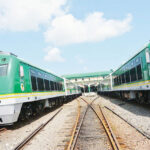The federal government recently announced that it was deploying solar-powered grids to 200 Primary Health Centres (PHC) and the 104 Unity Schools nationwide.
Daily Trust reports that this development is coming when the power supply from the national grid is not enough for the over eight million registered electricity customers of the 11 Distribution Companies (DisCos) with persistent complaints of high bills and frequent outages.
- ‘Why tetanus is on the rise among pregnant women’
- Kaduna govt mum as bandits threaten to kill varsity students
According to the Minister of Power, Engr. Sale Mamman, the renewable energy projects described as ‘quick wins’ will be deployed and completed in 12 months by the handling agency, the Nigerian Rural Electrification Agency (REA) and funded from federal government appropriation.
“In line with global best practice, all components and interventions being driven under the ESP of the Federal Government of Nigeria have been deliberately designed to optimise the best in renewable energy technologies, mitigating the impact of the COVID-19 pandemic while closing the energy gap across the nation,” Mamman said.
Tagged, ‘Energy for All – Mass Rural Electrification’, REA in its implementation document obtained by Daily Trust, said the project is an off-grid electrification programme for the deployment of solar electrification projects in primary healthcare centres, unity schools and households in vulnerable off-grid communities across the country.
It said REA will deliver the programme for the federal ministry of power as it is being implemented under the National Economic Sustainability Plan (ESP) geared towards supporting the country’s economic recovery in response to the COVID-19 pandemic.
Outlining the components of the project, REA stated that the first part is the installation of solar power mini-grids at 200 PHCs and the provision of solar street lights to the adjoining communities to boost security efforts at night.
The second part is the distribution of Solar Home Systems (SHS) to the 104 unity schools along with the provision of solar street lights within the campuses.
This is to also complement security efforts at a time schools are being targeted for the abduction of students for ransom.
The entire project is complemented by technical assistance and programme management scheme, the REA document stated.
According to the implementation document, upon completion, the programme will enable job creation, energy access to unserved and underserved areas across the geopolitical zones of the country.
It will also contribute to the attainment of the federal government’s plan of having at least 30 per cent of its total electricity supply from renewable sources, majorly solar power, by 2030.
Towards driving this goal, the ministry unveiled the Central Data Management System (CDMS) component of the Nigeria Sustainable Energy for All (SE4ALL) in November 2020.
This is part of the achievements roadmap for President Muhammadu Buhari’s Electricity Vision 30:30:30 which targets delivering 30,000 megawatts (MW) of electricity by 2030 with at least 30 per cent from renewable energy.
According to the ministry’s records, as of 2019, the national grid had over 70 per cent dependence on gas-fired power plants and over 30 per cent on hydrothermal power plants.
In terms of off-grid, it is estimated that over 20MW of solar power mini-grids would have been delivered to places not connected to the national grid.
On his part, the Minister of State for Power, Mr Goddy Jedy-Agba, in a statement on the project delivery, said: “The Mass Solar Electrification will strengthen the functionality of health centres, unity schools and communities that were in time past faced with the absence of electricity for a productive health and education sectors.”
Mr Jedy-Agba who supervises REA, said the agency has the mandate to provide electricity for unserved and underserved communities to catalyse economic growth and improve the quality of life for Nigerians.
Mr Jedy-Agba had in September 2020 commissioned the Volsus Solar for Health (VSFH) at Karu PHC in Abuja, the first facility for a PHC to be donated by the private sector – Volsus Energy Limited – to a government health facility. However, these 200 PHCs being targeted are wholly financed by the federal government.
Speaking on the implementation of key projects by REA, the Managing Director/CEO, Ahmad Salihijo Ahmad, said REA is implementing the Rural Electrification Fund (REF), Nigeria Electrification Project (NEP), Energising Education Programme (EEP), Grid Extension (capital projects), Energising Economies Initiative (EEI) and the Solar Power Naija Programme.
He also said REA was in the process of deploying solar power to another 100 major health facilities.
Salihijo said through these programmes, health centres, unity schools and communities would be strengthened with reliable power to deal with health cases, provide a conducive environment for quality education delivery and an improved standard of living.

 Join Daily Trust WhatsApp Community For Quick Access To News and Happenings Around You.
Join Daily Trust WhatsApp Community For Quick Access To News and Happenings Around You.


